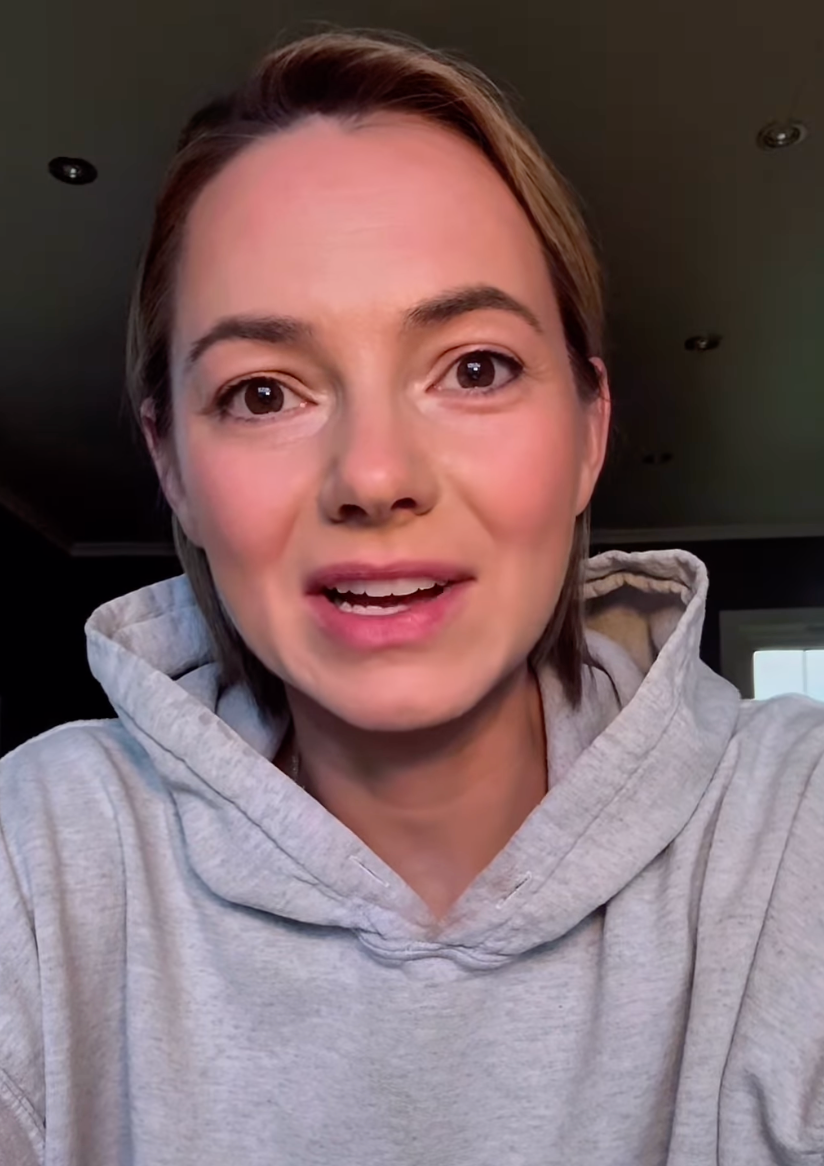Former EastEnders actor Kara Tointon has been flooded with support after revealing she underwent a double mastectomy upon discovering she was at risk of cancer.
The soap star, 41, who played Dawn Swann on the BBC soap from 2005 until 2009, explained she made the decision after undergoing a gene test, which discovered the BRCA1 gene that puts patients at a higher risk of breast, ovarian and other cancers.
Working with the gynaecological cancer charity The Eve Appeal, of which she is an ambassador, Tointon posted an Instagram video on Wednesday (28 May) to raise awareness of the preventative measures she has taken.
She said: “You may have heard of the BRCA genes 1 and 2 and as a carrier, it means I am at a greater risk of both breast and ovarian cancer.
Back in 2018 when my mum was undergoing treatment for ovarian cancer, I was asked to take a genetics test. There is a history of both cancers in my family on my mother’s side, but for various reasons, including generational trauma of which I’ll talk more about another time, we hadn’t looked into it until that point.
“But it was put to us, we took the test, and it was confirmed that my mum and I both carried the gene.”
Tointon announced the death of her mother, Carol, in 2019.
The 2010 Strictly Come Dancing winner, who has two boys with chiropractor and tech entrepreneur Marius Jensen, added: “I was pregnant with my first child at the time, knew I wanted more children if possible, so over the next couple of years I was invited to various meetings by the NHS, to really become informed and to understand all my options.

“Last year, having had my second son in 2021 and deciding that our family was complete, I underwent two preventative surgeries. The first a double mastectomy and the second a two-part protector study, a trial.
“They believe that ovarian cancer begins in the fallopian tubes so by removing them first, checking them out, you then remove the ovaries later, and closer to menopause.
“We are finding out more and more about personal genetics and many people find that regular surveillance suits them very well, but for me, having done that for a few years, MRIs finding things, biopsies, waiting for result, I decided that this was the right decision for me and my family.
“It wasn’t an easy decision, but one I’m very glad and lucky I made, and I can now, with hindsight, talk about it properly.”
After making the announcement, Tointon’s Instagram post was inundated with messages of support from friends and other members of the entertainment industry.
West End actor and podcast host Giovanna Fletcher wrote: “Love you so very much my friend!!!”
Jo Joyner, who played Tanya Branning in EastEnders, said: “Amazing that you've shared your story. Sorry to hear you've been through such a difficult journey involving brave choices. You're a great ambassador and I'm sure you'll inspire and inform many people. Sending love xx.”
Violinist Izzy Judd added: “Huge admiration to you for sharing your story and making brave decisions.”
“Sending nothing but love,” said broadcaster Kate Thornton.
Hollywood star Angelina Jolie underwent a double mastectomy in 2013 after she discovered she carried the BRCA1 gene, leading to greater awareness of the gene defect, following her mother’s death from ovarian cancer.
Around one in 1,000 women across the UK have a BRCA1 variant, but most breast and ovarian cancers happen due to chance damage to genes.
A positive genetic test does not mean you will develop cancer, and other factors are involved.
But those who do have a mastectomy to remove both breasts will reduce their risk of developing breast cancer to less than 5 per cent – lower than that of the general population. Surgery to remove the ovaries reduces the risk of developing ovarian cancer by up to 50 per cent.
The NHS also advices that the risk of ovarian cancer for BRCA gene fault carriers does not dramatically rise until about the age of 40 – so those under this age will usually be expected to wait until they are older.
Additional reporting by PA
Barbara Windsor’s widower defends new relationship: ‘I believe she would be happy’
EastEnders actor feels ‘very lucky’ after revealing cancer diagnosis
What’s ‘dadcore’? Here’s how to wear it
10 ways to style up your summer tablescape
Love to drink coffee and travel the world? Starbucks has the perfect job role for you
New research challenges the benefits of walking 10,000 steps a day






